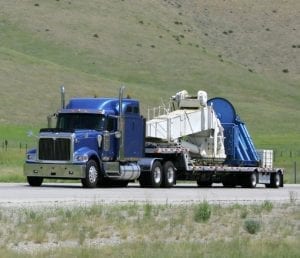Driverless Trucks
February 22, 2017
Driverless trucks seem like one of the hottest topics in the shipping industry. Read enough headlines and it seems like in just a few months all of the trucking jobs will be replaced by computerized semis.
But if you take a clear look at the issue, you’ll see that driverless trucks are still in the distant future.
 Advancements in Driverless Technologies
Advancements in Driverless Technologies
Let’s start by looking at the current advancements in driverless technology. One of the most important recent stories in autonomous trucking comes from Europe, where about a dozen trucks completed a “largely autonomous” trip across the continent. Truck platoons drove from three different locations across the continent. One platoon completed a trip of over 1,200 miles.
Tune to U.S. technology news, and you can’t help but come across stories from innovators like Google, Uber, and Ford, who are all developing a form of autonomous driving technology. Most of these are positive, but a tragic story hit the headlines in late June, when a self-driving Tesla Model S was involved in a fatal crash. Tesla CEO Elon Musk was quick to defend his company’s technology and the life-saving potential of autonomous driving. But it was a setback for the public’s feeling towards self-driving vehicles.
Trying to get a pulse on autonomous driving from the headlines can be a challenge. To dig deeper, let’s look at some of the current technology being used for autonomous and driverless trucking.
Full Automation Still a Long Way
If you look at the current technology being used in trucking, you see two very different stories. One says we are steadily enhancing autonomous vehicles, and another says that driverless trucks are still in the distant future.
That is because there is a difference between autonomous and driverless trucks. Driverless is pretty self-explanatory. It is a vehicle that has no driver. But autonomous is different. Autonomous means that at least part of the driving is handled by technology. If you think about it, vehicles we have on the road today already have autonomous features. Cruise control and automatic transmission are common examples of this. There are also features that automatically keep the vehicle in its lane and brake when it predicts an accident.
Think of it this way: the move to driverless trucks won’t be sudden, but it will gradually reduce driving tasks until one day the driver just has to monitor a system.
We’ll see this trend develop over the next few years, decades, or even a century. But one thing is for sure, trucking jobs are still secure.
What Can Trucking Companies Do Today?
Most of the information you’ll find on driverless trucks deals with large-Scale topics. Global economies, mass driver shortages, trade logistics… the list goes on and on. But as the owner of a small trucking company, these issues are not a concern. What concerns you is generating profits, lowering operating costs and maintaining a steady, strong business. So how should you, the owner or truck driver, deal with driverless technology?
First of all, it’s important to not panic and assume the sky is falling. You can easily go online and read exaggerated headlines stating that driverless cars will leave many truckers in the welfare line and numerous trucking companies will be forced out of business. Some say truckers will be unable to compete with corporations that can afford high-tech driverless trucks. Take these reports with a grain of salt and remember that in the media, sensation sells.
There are still a few adjustments you can make to your business to prepare yourself for the progression of autonomy. Knowledge is power, so make sure you are up to date on the latest technologies and developments. Understand that autonomous technology, such as lane alerts and automatic braking, could increase safety and enhance your operations. Keep in mind that many autonomous features, especially “platooning,” a computer-controlled form of drafting, could increase fuel efficiency and lower spending costs.
Stay ready for gradual change, but rest assured that there will still be a strong trucking market for decades to come.
About Scale Funding
Scale Funding is an invoice factoring company serving businesses across the United States. For more information on factoring, call (800) 707-4845 for a free, no-obligation consultation and quote.


